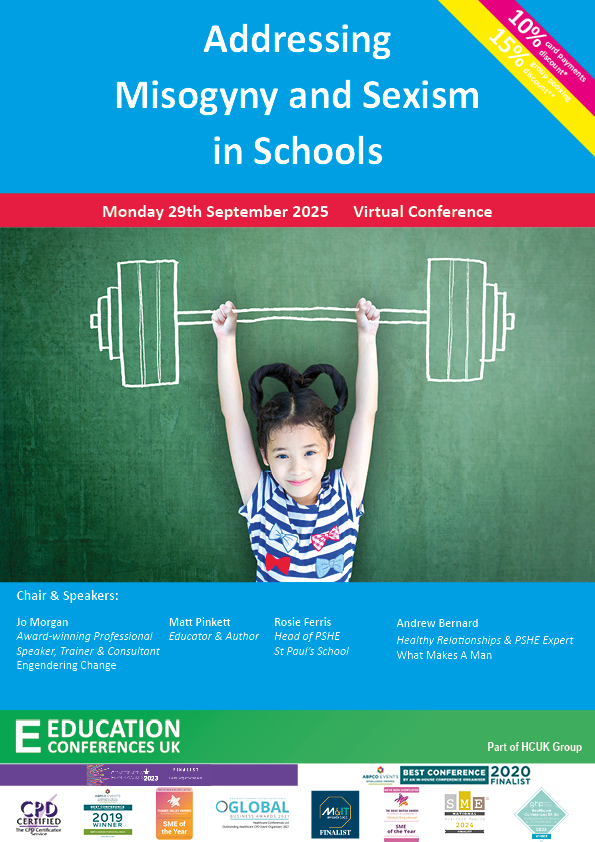Follow the conference on X #misogynyinschools
“Misogyny is a growing scourge in our classrooms and if we fail to tackle it now, we store up huge problems for society in years to come…Female pupils and teachers deserve the right to a safe space, but it is evident that content from influencers such as Andrew Tate is having a lasting and damaging impact on boys and young men.”
Bridget Phillipson, Secretary of State for Education and Minister for Women and Equalities
“Sexism in schools is symptomatic of gender inequality across our society. Using education to prevent sexist ideas and attitudes is vital – but only with a whole school approach and an approach that’s supportive of schools.”
Daniel Kebede, General Secretary, National Education Union
Join us for day dedicated to addressing misogyny and sexism in schools, equipping you with the knowledge and tools to make a meaningful impact in your community. With expert-led sessions on everything from understanding the prevalence of misogyny to integrating gender equity into the curriculum, this conference is designed to support school leaders in creating safe, respectful, and inclusive environments. Gain insights into practical strategies, explore real-world case studies, and discover actionable steps to combat harmful behaviours and attitudes.
This comprehensive agenda features engaging discussions on the impact of misogynistic language, the rise of online content fuelling harmful stereotypes, and the role of education in dismantling sexism. Delve into topics like gendered approaches to combatting misogyny, promoting healthy masculinity among boys, and working with families to extend these efforts beyond school walls. With opportunities for networking, breakout discussions, and Q&A sessions, this conference offers a collaborative platform to share experiences, learn from peers, and drive lasting change in schools.
Who should attend?
DSLs, DDSLs, pastoral leads, headteachers, assistant heads, deputy heads and other members of the leadership team.
This conference will enable you to:
Address ongoing concerns around the increase of misogynistic behaviours in education settings
Understand how these behaviours can impact pupils and the wider school community
Better understand the type of content available online
Recognise different types of sexism and misogyny, including those directed towards staff
Ensure you are responding consistently to enforce school policies and procedures
Support students and staff who have experienced misogynistic behaviour
Tackle the use of misogynistic language
Take steps to integrate gender equality across the curriculum and encourage critical thinking
Champion a whole-school approach to tackling sexism
Understand how you can work with boys to promote positive healthy masculinity and challenge toxic stereotypes
Work alongside parents and the community to promote respectful behaviour
Discuss with colleagues concerns around misogyny in your school







